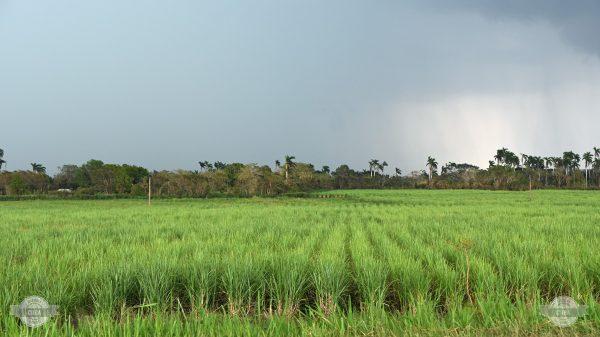~ The provision repeals part of the U.S. trade embargo on Cuba ~
President Trump signed the 2018 farm bill (Agricultural Improvement Act of 2018) into law with a provision that will allow U.S. agricultural producers to use federal market promotion dollars for exports to Cuba. This is the first law to repeal part of the U.S. embargo on Cuba in nearly 20 years and lays the groundwork for comprehensive trade between the United States and Cuba.
The provision codifies the ability of U.S. farmers receiving U.S. Department of Agriculture (USDA) market promotion grants to direct those funds toward marketing their products in Cuba. These grants, under the Market Access Program (MAP) and Foreign Market Development (FMD) program, help U.S. farmers offset the costs of overseas marketing.
The included provision, as well as increasing agricultural trade between the United States and Cuba more broadly, was a cornerstone of Engage Cuba’s legislative priorities for the 115th Congress. “This is an important victory for America’s farmers, and will enable them to compete on a more equal footing to sell our agriculture products to Cuba,” said James Williams, President of Engage Cuba.
“It’s a rebuke to Cuban-American hardliners who have clung to a failed policy of isolation for the past 56 years. American farmers are the best in the world, and it’s a travesty that our archaic laws have prevented them from opening new markets so close to our shores,” Williams said.
The provision, introduced by Senator Heidi Heitkamp (D-ND), passed both chambers of Congress last week with wide bipartisan support. Sen. Heitkamp’s MAP/FMD amendment is part of the Senate Agricultural Export Expansion Act (S.275), which would also remove restrictions on private financing of U.S. agricultural exports to Cuba if passed.
A 2000 sanctions law exempts food sales from the U.S. embargo, but it bars U.S. sellers from offering financing or credit terms to Cuban purchasers and prohibits taxpayer-funded export assistance for sales to Cuba. The 2018 farm bill repeals the ban on export assistance by allowing the use of MAP/FMD dollars in Cuba. A provision to fully remove agricultural financing restrictions on Cuba was also considered but ultimately not included, despite ardent support from members of the House Agriculture Committee and national commodity groups.
Cuba imports $1.8 billion in agricultural products annually, but only a fraction comes from the U.S. due to the cash-only requirement. Opening Cuban markets to producers of commodities like poultry, soy, wheat, and dairy could deliver a much-needed boost to U.S. agribusiness.
What lawmakers are saying
Senator Heidi Heitkamp (D-ND):
“Farmers and ranchers rely on trade to sell their products, support their families, and grow their businesses. And with the passage of our bipartisan amendment in the 2018 Farm Bill, we are one step closer to giving crop and livestock producers a stronger foothold in the Cuban market and increased opportunities for exports. Cuba is a natural buyer for many homegrown North Dakota products, such as peas, lentils, and dry edible beans. This amendment recognizes Cuba’s potential as a reliable trade partner and gives farmers the tools they need to increase demand for their products on the island. During a time of great uncertainty across the farm economy, this legislation is terrific news for North Dakota’s farm families and rural communities—and it’s an important milestone in loosening the embargo. I am proud to have helped push the final version of the 2018 Farm Bill across the finish line, and I’ll continue to voice my support for profitable agricultural trade with Cuba.”
Senator John Boozman (R-AR):
“Increasing opportunities for agricultural trade between Cuba and the U.S. is a victory for American farmers. Enhancing their ability to promote their products and build relationships in a market that imports nearly 80 percent of its food is exactly the right thing to do, particularly given the challenges the agriculture industry has been confronting, and I hope to build on this momentum to accomplish even greater opportunities for trade that benefits both nations.”
Senator Patrick Leahy (D-VT):
“Cuba is a country of 11 million consumers 90 miles from the United States, yet for decades U.S. companies have been shut out of the Cuban market due to U.S. laws that perpetuated a failed policy of isolation. This bill finally puts the U.S. government on the side of American farmers who want to export their products to Cuba. Now we need to make it easier for Cubans to buy American products on credit, which a majority in Congress supports. It is long past time for the U.S. government to stop standing in the way of U.S. business in Cuba.”
Congressman Rick Crawford (R-AR-1):
“I applaud my Senate colleagues for working to get this provision in their bill and worked hard to make sure it made it into the final conference report. The Heitkamp amendment is an important first step towards exporting American agriculture goods into Cuba. We look forward to building on this momentum in the 116th Congress.”
Congressman Roger Marshall (R-KS-1):
“I am proud that the 2018 Farm Bill promotes trade by allowing the use of USDA market promotion programs in Cuba. Farmers need new markets and welcome any policies that provide the opportunity to expand trade.”
Congressman Tom Emmer (R-MN-6):
“This bipartisan amendment is a positive step in the right direction for American farmers and the nation as a whole, as well as for U.S.-Cuba relations. With farm incomes down, now more than ever, we should be redoubling our efforts to expand trade and open new markets. Cuba has the potential to be a major buyer of Minnesota products including corn and soybeans. I look forward to continuing to build on this effort in the next Congress.”
Congressman Ralph Abraham (R-LA-5):
“Any steps forward to normalized trade relations between the United States and Cuba should be celebrated. I remain hopeful that one day Cuba will have full access to American agriculture products, and I will continue to support those efforts.”
What U.S. commodity groups are saying
Betsy Ward, CEO, USA Rice:
“Cuba once was the top market for U.S. grown rice, importing over 200,000 MT of rice a year. With current trade disruptions, and the U.S. farm economy suffering from successive years of declining prices, allowing the use of USDA export promotion dollars to build relationships in Cuba is an important first step to regaining our presence in Cuba.
The U.S. rice industry appreciates the continued efforts by Senator Boozman and Representative Crawford and many others in Congress who continue to pursue common sense policies aimed at normalizing our relationship with Cuba through trade. We look forward to working with the Administration to implement market promotion programs in Cuba, and will continue to push for measures that will allow Cubans to buy U.S. grown rice on credit, an important next step in normalizing trade relations and recapturing the Cuban market.”
Vince Peterson, President, U.S. Wheat Associates:
“U.S. Wheat Associates (USW) is hopeful that the increasing public and congressional support for more open trade with Cuba, including the opportunity to use MAP and FMD funding to conduct market development activities, will lead to an eventual end to the U.S. embargo. Cuba is a significant wheat importing nation and our farmers can supply high-quality wheat at a lower cost than Cuba pays now to import European and Canadian wheat. Wheat is an important food grain that should be above politics, but the embargo will likely have to end before wheat farmers can help meet the increasing demand for agricultural products to help feed the Cuban people.”
Press release from Engage Cuba on the new trade provision

This just in… publish your latest business industry news on Cuba here. Contact us here to submit your press release.














